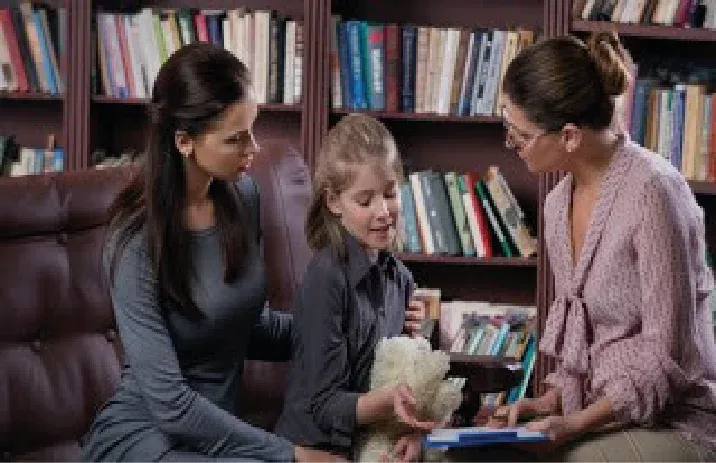The Role of the Guardian Ad Litem in Court Proceedings
The Guardian Ad Litem is an independent officer of the Court appointed by the Northern Ireland Guardian Ad Litem Agency (NIGALA). They represent the child in public law proceedings and in private law proceedings if an art. 56 investigation is directed by the Court. Their role is to speak to the child and advise the Court of the wishes and feelings of the child. The Guardian Ad Litem represents and safeguards a child’s interests. They will thoroughly investigate the child’s circumstances and provide a recommendation to the Court.
The main duty of the GAL is to protect the interests of your child. A GAL is an independent Officer of the Court and can therefore help to protect your child’s rights whilst ensuring that your right to family life is fully considered. The right to a fair trial is also a key concern of the Guardian Ad Litem. Once appointed by the court, the GAL will appoint a solicitor (from the NIGALA Solicitor’s Panel) to represent your child in court. They will ensure that your child’s best interests are appropriately represented in proceedings and will write a report for the court making a recommendation about what they think is in the best interest of the child.
The GAL will always meet with your child to talk about what is happening (depending on the age and level of understanding of your child). They will want to know what the feelings and wishes of your child are, and what they would like to see happen. They will also want to evaluate any other person, who may have a role in your child’s care (eg. aunts, uncles, grandparents) and they will look at the history of your child’s case for example if Social workers who have previously been involved with the child. It will also be important for them to liaise with other professionals such as schoolteachers, GP, health visitor as appropriate.
What issues will the Guardian ad Litem consider?
In order to make their recommendation to the court, the GAL has to get to know your child and family. In addition to meeting with all the people mentioned above, the GAL will need to look at the relevant case files held by the Trust, and may also attend any meetings regarding your child that they think is important.
The GAL must also advise the court if an expert witness should be appointed to help decide on what is best for your child, which level of court is best placed to deal with your child’s case. More complex cases will be dealt with by the High Court.
During the case the GAL will explain to your child what the court is being asked to decide. If it is agreed by the court and they are old enough, your child can participate in the final hearing. In some circumstances this may involve travelling to the court building to meet the Judge. The level of participation of your child in the proceedings is dependent on your child’s age/competence and the court’s agreement.
A Solicitor is appointed to essentially work alongside and in partnership with the Guardian Ad Litem to promote the interests of the child and advise the Court on the child’s wishes and feelings. The Guardian Ad Litem and the Solicitor must try to achieve the best possible outcome for the child in the circumstances. A balance needs to be struck between the child’s rights and wishes with their responsibility to keep the child free from harm.
It is also important for the GAL and instructed Solicitor to ascertain whether or not the child is competent to communicate their wishes and feelings and their understanding of their circumstances which have led to the proceedings before. The Solicitor will need to be mindful if the child is competent to give instructions.
The extent to which the child’s decisions are upheld as if they were an adult depends on a number of factors, such as the child’s age and understanding, as well as the matter in issue and the severity of the consequences of the decision (Gillick v West Norfolk & Wisbeth Area Health Authority [1986] 1 AC 112).
It is generally accepted that the competent child should be able to communicate their wishes and feelings, views on the background events leading to the proceedings, have a perception of the reasons as to why they are in care and a perception of the length of time of their stay in care. It is important to remember that it is possible for a child to be competent about some issues but not others and the age of the child, whilst relevant, is not conclusive of competence in itself. The establishment of competency is extremely important and must be kept under review throughout the proceedings. All of these matters are issues to be dealt with by the GAL and his/ her instructing solicitor and will ensure the best interests of the child.

